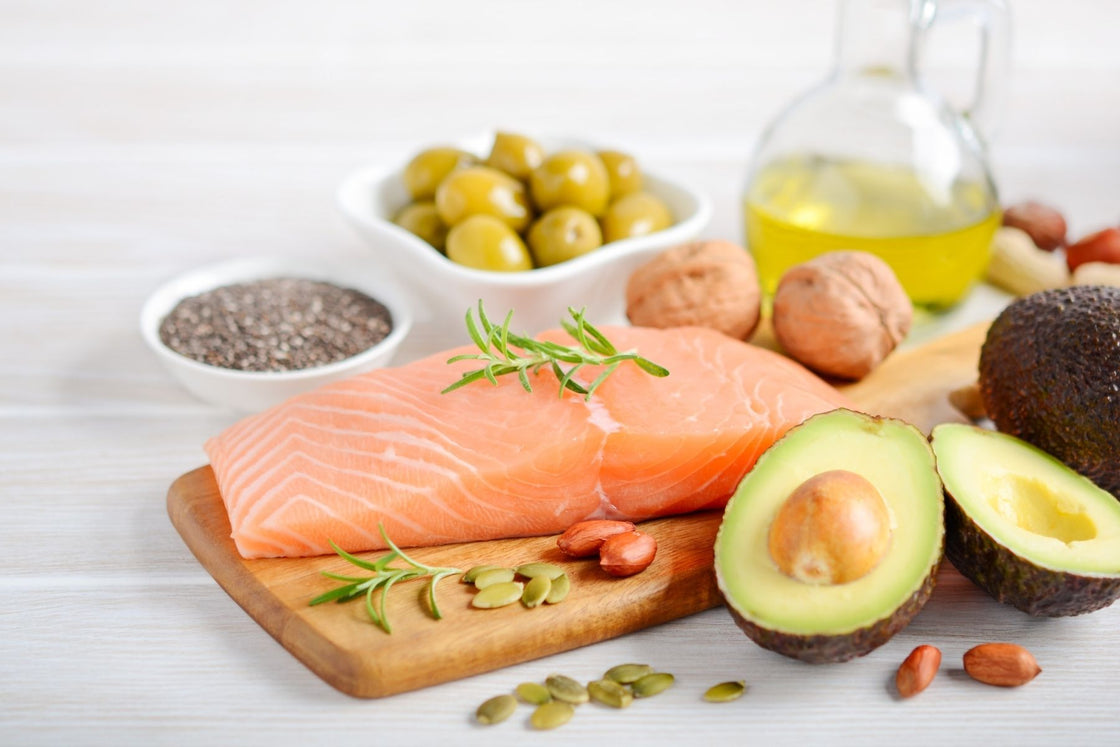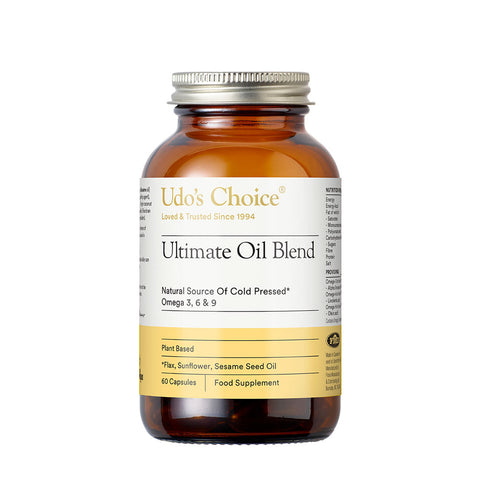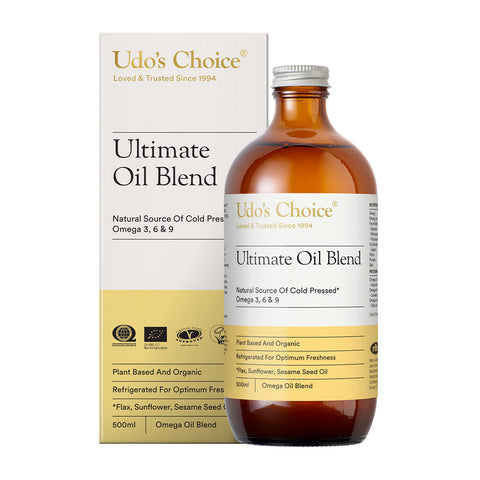Currently in the UK, “Omega 3” is often associated with fish. Everywhere you look you see slogans encouraging you to “get more Omega 3 EFAs from fish and fish oils”. This recommendation seems harmless enough, but on closer inspection leaves some questions unanswered.
Essential vs non-essential Omega Oils
Firstly the wording – “Omega 3 EFAs”. EFA stands for essential fatty acid, of which there are two – Alpha linolenic acid (ALA) and Linoleic acid (LA). They are not found in appreciable quantities in fish oils, however, fish and fish oils are excellent sources of the non-essential Omega 3 fatty acids Eicosapentaenoic acid (EPA) and Docosahexaenoic acid (DHA).
Both EPA and DHA can be made in the body as required from ALA. Omega 3 ALA and Omega 6 LA cannot be made by the body so are termed Essential - they must be taken in through our diet.
Is Fish the Preferred Source of Omega 3?
Does it mean that fish is the preferred way to get your Omega’s? No!
Fish live their life in the sea, alongside all the industrial pollutants that man decides to dump there. As most toxins are fat soluble, they find their way into fish and fish oils as a matter of preference. Organic seed oils are not exposed to the same high levels of toxins, and so pose no threat by comparison.
Fish oil manufacturers attempt to remove these toxins but the process to do so damages the very delicate fatty acids that are the reason for consuming the supplement. EPA and DHA are roughly five times easier to damage with heat, light and oxygen than ALA, the delicate Omega 3 EFA. Heat, light and oxygen can all be present in many fish oil processing techniques before it reaches the final consumer.
With Udo's Oil from seeds we take the utmost care to preserve the quality of the oils by cold pressing them in the absence of heat, light and oxygen, then bottling them in nitrogen flushed amber glass. This is what gives us such a superior blend. Fish oils, once they are extracted from the fish are subjected to steam distillation and deodorising techniques at high temperatures and pressures, leaving them prone to damage.
However, supplementation alone is not sufficient for optimum health - we all need a strong 'foundation' before adding supplements.
Fish oils do not have appreciable amounts of Omega 6 LA in them and both Omega 3 and Omega 6 are required for optimum health. Even though we get more Omega 6 than 3 in our diets much of the Omega 6 is damaged and the absolute quantities of both are relatively low. If you take a lot of Omega 3 supplements it is easy to become Omega 6 deficient - see our article on Striking the Right Balance.
Oily fish
Will tuna, haddock, cod or plaice do the trick? Unfortunately not. There isn’t a great following of oily fish consumption in the UK, and recommendations to eat more often leave the public consuming non oily fish, which are not good sources of fats.
For more information on Seed vs Fish oils, visit www.vegetarian.org.uk and read 'Fishing for Facts' - Why public health strategy should promote plant oils in preference to fish oils, a scientific report by Laura Scott, MSc Nutrition, VVF Senior Nutritionist.





